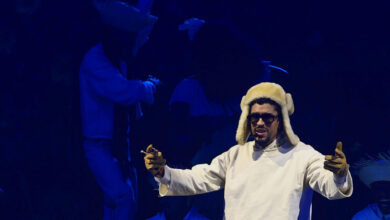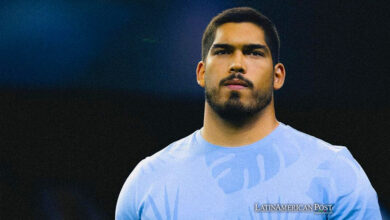Latin America in Short: Nicaragua Deports Imprisoned Opponents | PAHO Has a New Director
This week, the Nicaraguan government deports imprisoned opponents whose identity is so far unknown. On the other hand, PAHO has a new director. This and more summarized here.

Photo: AP, PAHO
LatinAmerican Post
Listen to this article
Leer en español: Latinoamérica en resumen: Nicaragua deporta opositores presos | La OPS tiene nuevo director
In Latin America, the Nicaraguan government deports imprisoned opponents this week after having sanctioned them for treason. In addition, PAHO has a new director starting this week. In global news, Green Peace accuses the European Union of greenwashing and will take this accusation to court. Lastly, in sports, Manchester City is suffering from legal problems, while in the United States they are getting ready for the celebration of the Super Bowl. We tell you everything here.
Nicaragua deports 222 imprisoned opponents
This Thursday, February 9, magistrate Octavio Rothschuh, president of Chamber One of the Managua Court of Appeals, confirmed that the Nicaraguan government would release and deport 222 imprisoned opponents to the United States. According to Rothschuh, the deportees were declared traitors to the homeland, for which they have been sanctioned and will not be able to hold any public office.
Although the identity of the deportees is unknown, it is believed that among them there could be politicians opposed to the government of Daniel Ortega and priests, against whom the government has recently attacked. According to the Mechanism for the Recognition of Political Prisoners in Nicaragua, there are currently at least 235 political prisoners under the Ortega regime. Among these are Bishop Rolando Álvarez and seven former opposition politicians who were imprisoned before the elections that Ortega won amid accusations of fraud. It is not yet confirmed if any of them are among the list of deportees.
Read also: Nicaragua: This Is the Eccentric Restriction of Daniel Ortega to Stay in Power
The new Regional Director of WHO in the Americas began his mandate
The Brazilian Jarbas Barbosa is the new director of the Pan American Health Organization. He assumed command on February 6, when he was named by the WHO at an event in Geneva, Switzerland. On Wednesday, February 8, the new director met with Pedro Sánchez, President of the Government of Spain, to discuss the renewal of support for health programs in Latin America and the Caribbean. Spain, with its cooperation agency, has been one of the main partners for the region. "Spain provided more than 22.8 million doses through COVAX," says a PAHO statement.
Green Peace will denounce the European Commission for greenwashing
The international environmental organization Greenpeace announced that it will denounce the European Commission before the Court of Justice of the European Union for classifying some investments in gas and nuclear energy as sustainable. Their argument is that they violate the commitments of the Paris Agreement. “Life cycle emissions from nuclear power, uranium mining, high water use, hot water discharge, and large-scale generation of radioactive waste” violate the do-no-significant-harm principle, as Green Peace said in a statement. In this they expose all the arguments for which they will go to court.
Manchester City with legal problems
The great empire of the 'citizen' box is about to collapse, since it is currently in the eye of the hurricane due to a possible case of fraud and inconsistencies in its accounts since 2009. This investigation has been carried out by the Premier League, that it is willing to put a strong sanction on the English team. If this sanction is confirmed, Manchester City will not only have to pay a significant sum of money, but it could also lose the category, an aspect that would cause the departure of its most important players and especially that of its coach Pep Guardiola.
All set for the most important sports event in the United States
Super Bowl 57 opens its doors to all American football fans, who gather once again to watch one of the biggest sports events in the world. This time the Philadelphia Eagles face off against the Kansas City Chiefs. This will be one of the most exciting engagements of the entire NFL season, as both teams have been putting in great performances throughout the season. This match will take place on February 12, when families and fans gather to watch the final of the king of sports in the United States.





